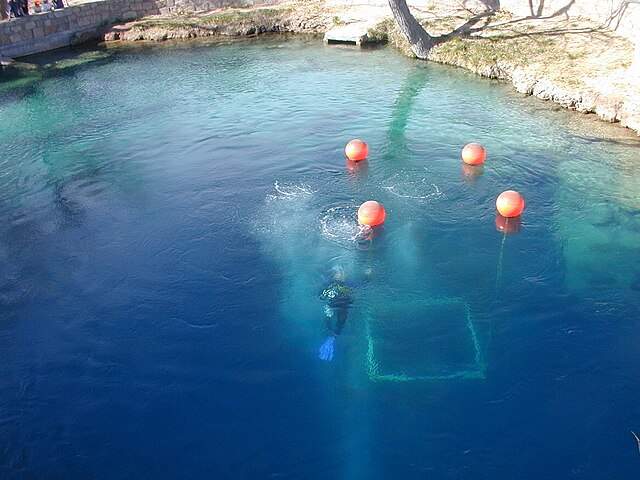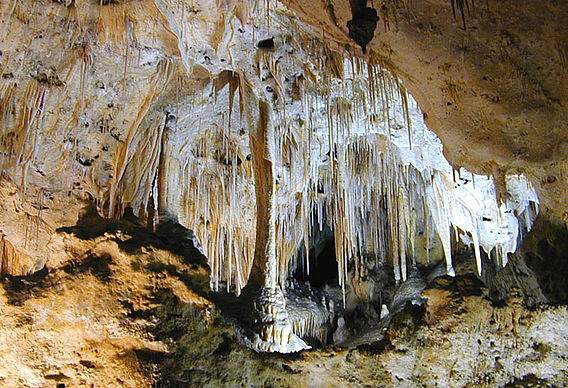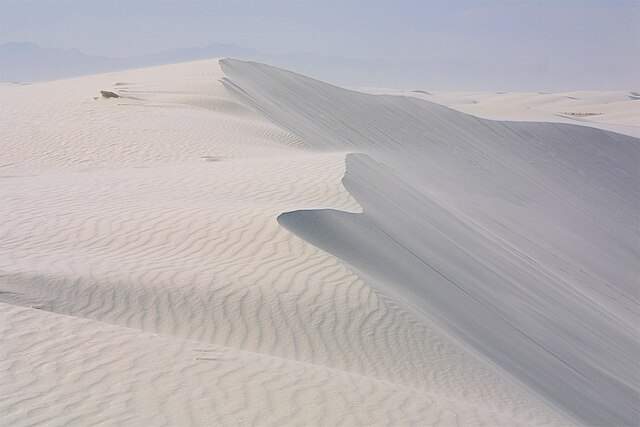The best places to see in New Mexico are a testament to its unique charm. New Mexico is a land of diverse landscapes. It is of rich history and vibrant culture.
It is offering travelers an array of unforgettable experiences. New Mexico is offering the stunning desert vistas of White Sands to the ancient cliff dwellings at Bandelier National Monument.
New Mexico’s hidden gems and iconic landmarks promise an unforgettable journey through the Land of Enchantment.
The photo shows the incredible White Sands National Park, one of the geographical wonders in the world.
This magnificent place is one of the several Places to See in New Mexico, one of the States in the United States.
The state capital is Santa Fe, but Albuquerque city is larger and finds itself among the most visited cities in New Mexico.
Let me get straight to the list of best places to see in New Mexico, a neighboring state of Texas and Arizona.
The state’s diverse landscape include a desert, mountains, forests, meadows, and snow-clad summits.
I request you to recall some of the cowboy movies that were highly popular in the 1960s. They were shot in New Mexico.
10 Best Places to See in New Mexico for an Epic Tour!
1. White Sands National Park
As a big attraction to see and also an ideal ground to enjoy sandskiing, and sandboarding, it is located about 330 km south of Albuquerque. The nearest city is Alamogordo.
Buses ply frequently between these two places.

Our white sand beauty is 24 km away from Alamogordo. The wilderness occupies a huge 590 sq. km area.
Dunes vary in sizes, and stretches. The tallest dune measures 60 feet!
There are campgrounds, hiking trails, guided tours to track wildlife at this national park. A visitor center is set up at the entrance.
As many as 800 species of wildlife, the majority of which are invertebrates, have been spotted and recorded here.
Insist on seeing Lake Lucero upon your tour guide.
Watch out for some fast movements on the sand. Catch a glimpse of the state bird Roadrunner.
2. Valles Caldera
This volcanic caldera is seen on top of the Jemez Mountains. When you go to visit Santa Fe, you can quickly make a day trip as the mind-boggling attraction is only 90 km away.
Hike the Jamez Mountains with a local guide. You can spot numerous fumaroles, and natural geysers.
The caldera or crater occupies an area of unbelievable proportions, measuring roughly 90,000 acres!
A crater comprising such an area is beyond human visualization.
Such a large area is bound to show varied geography and flora, and fauna.
It is safe to hike up to the summit that stands over 13,000 feet. The volcano last spewed lava, some 70,000 years ago.
3. Star gazing
The geography of New Mexico, its limited populations, and not too much of artificial light is too good for star gazing.
Though, there are several places there with dark skies, a few designated star watching parks in the state.
Below is a short list of Places to See in New Mexico that are exclusively for star gazing.
- Cosmic Campground
- Clayton Lake State Park
- Fort Union National Monument-this park has a telescope too as an added attraction
- Chaco Culture National Historic Park
- Bosque del Apache Wildlife Refuge
- Valles Caldera area
When you visit Santa Fe, your itinerary will include a night for star gazing in one of the several nearby areas.
4. Ghost Ranch
Wilderness covering a large area is always a great sight to watch. It is like looking at a large lake with no vision of the horizon.
We have seen such endless stretch of rolling hills in old cowboy movies, promising you a village or a town at the next escarpment but when you reach the ridge, the endless wilderness will greet you. Even today, movies are frequently shot here.
The ranch comprises a whopping 85 sq. km area. For a better visualization, imagine 21,000 acres of vast area that is covered with miles of rock walls in reddish orange color.
The Ghost Ranch is located about a little more than 100 km from Santa Fe. It is certainly one of the big geographical attractions in New Mexico.
5. Santa Rosa Blue Hole

Santa Rosa Blue Hole is one of the biggest natural swimming holes in New Mexico. It is seen in Santa Rosa city that lies 190 km east of Albuquerque.
Please be aware that blue holes are naturally occurring cenotes that are also known as sink holes. When the earth collapses, revealing the groundwater, the gaping is called a sinkhole.
Santa Rosa blue hole has room for more than 40 people at a time because its width is 80 feet.
Since its depth is also 80 feet, the blue hole is conducive for scuba diving. Divers are captivated by the schools of a beautiful fish species known as, ‘koi’.
6. Carlsbad Caverns

Be wary of this stalactite crystal to have sharp tips.
It’s one of the best places to see in New Mexico that has been in existence since ancient times. The number of tourists to see these splendid subterranean caverns is so large that, it was declared a national park.
Tourists are taken inside by a guide. This is how it will look when you enter.
You are taken in an elevator to go down. That would be a thrilling experience to enter a subterranean rock chamber which might lead you to more chambers.
As many as 119 caves have been counted. All of them are interlinked. This means, you can go through the limestone chambers, as they are called.
There are many mysteries waiting for us down there, that are largely unexplored.
As the name indicates, you have to go to Carlsbad city to feel like a caveman. It is located 280 km southeast of Albuquerque city.
7. Shiprock
The natural rock formation that is tall and standing alone is certainly one of the beautiful attractions to see in New Mexico.
Since shown in the films frequently, it has turned into an iconic landmark in New Mexico. The cinema fame has started pulling ardent rock climbers from all over America.
Touching the rock should give you goosebumps because the cliff is 27 million years old!
This scenic landmark is located 210 km north of Albuquerque.
8. Rio Grande Gorge
See it in full-screen mode. The sheer magnificence will make you gasp and your eyes will be at their widest in surprise.
Rio Grande is the name of the river that you have seen in the photo above, flowing at the bottom of the canyon. The bottom of the gorge measures 800 feet from the top.
Do you know how long the Rio Grande flows? Its length is about 3050 km!
The Rio Grande Gorge that is also called Taos Gorge runs for 80 km, starting from the Colorado border.
This iconic Rio Grande Bridge is built across the Taos Gorge. The river is seen at 600 feet below.
The area was recognized as a recreation area. The most attractive activity is indulging in white water rafting in the Rio Grande.
RV parks are available. You are allowed to fish in the river, in which boating is also offered. Of course, the canyon’s trails are ideal for hiking, and wildlife watching. The trail is nearly 1000 km long!
Some more prominent dwellers in the mountain include the fearless bighorn sheep, mountain lions, and even black bear.
Wildlife that you can spot includes the sandhill crane, and jaguarondi, a wild cat species.
Both the canyon, and the bridge, are two best places to see in New Mexico. Staying options are plenty, and it is advised to stay to enjoy early morning hiking, and boating.
9. Basque del Apache National Wildlife Refuge
I read that New Mexico is a blessed state because of its exotic wildlife. When you visit this 5th largest state in the U.S., don’t fail to go to this wildlife refuge, one of the major attractions in New Mexico.
Among the numerous bird species, two easily identifiable birds are the Sandhill Crane, and the Snow Geese.
Both of them are migratory birds. Nearly 400 species of avifauna exist here and it is diverse.
Basque del Apache National Wildlife Refuge is located in San Antonio, 100 km south of Albuquerque.
Note: There is a San Antonio in Texas also.
10. Brazos Cliffs
What you see is a mountain range with a peak that is situated at 11,290 feet! The mountain range is called Brazos Mountains that occupies the northern part of New Mexico.
Chama is a picture-perfect village nestling among the Brazos Mountains. Sitting at 8000 feet, it offers great views of the mountains, and the Chama Valley.


